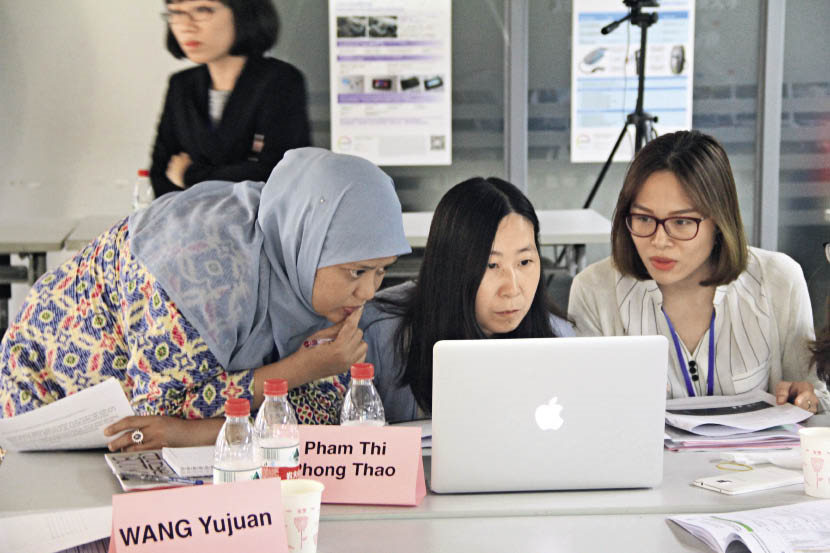International Cooperation on Education for Sustainable Development
China Today by LIU YI, December 20, 2016 Adjust font size:

Cognizant of international cooperation as the only way forward for all who live on Earth, trainees from China and Asian-Pacific countries join hands in tackling environmental issues.
“Trainees from developing countries usually find China’s experience more useful than that of the developed countries,” Professor Wu Jiang said. “This is because China’s environmental experience is both recent and proven, and so of excellent reference value.”
The water treatment technology transfer projects, led by IESD Deputy Dean Li Fengting, are under construction in Ethiopia, Kenya, and 10 other African countries. Li, a water processing expert, is in the midst of applying China’s potable water and waste water treatment technologies in African cities. The projects, which embody model environmental cooperation between China and Africa, are hailed by locals, and also have the full support of China’s Ministry of Science and Technology.
Leader of Education for Sustainable Development
Certain early sustainable development concepts appeared on the Chinese campus in the early 1980s when Wu Jiang was a student at Tongji University. At that time, however, China’s focus was almost exclusively on economic growth, and the concept of sustainability was barely comprehended throughout the world at large. Only in the last decade or so have people become aware of the detrimental high-pollutant downside to high energy consumption, and accordingly adjusted production and lifestyle modes.
“Why did we protect the environment, build green architectures, and promote garbage sorting?” Professor Wu asked, rhetorically. “Solely for a cleaner environment?”
Wu believes that sustainable development is not so much a technical issue of “how” but one – more to do with values – of “why.” The culprit of environmental deterioration is the serious contradiction among generations. We exploited resources, leaving few for our offspring. The development of one generation has thus been at the cost of opportunities for the succeeding ones.
“We need to re-establish these values: It is immoral to plunder the resources that our children and grandchildren should inherit!” Wu declared.
He believes that inculcating values and ethics in students is at the core of sustainable development education. The knowledge and technologies that students learn are only tools. Whether they are used to destroy the environment or nurture it for the future is determined by the values that students hold. But Professor Wu added frankly: “This mission can’t be completed by one or two persons, or even in one or two generations.”
It was in this spirit that Wu Jiang initiated a global university alliance. He found that many colleges were aware of the importance of education for sustainable development, but needed to explore this new field together and learn from one another.
In June 2012, the Global Universities Partnership on Environment for Sustainability (GUPES) was established in Nairobi under the guidance of the UNEP. Professor Wu Jiang was elected as its first president.
Four years later, over 800 universities have joined GUPES, and some 200 universities have filed for participation. The partnership just concluded its yearly conference at MIT in Boston, U.S., last September. Wu Jiang introduced at this event Tongji’s experience, and discussed with his foreign peers how to establish an inter-generational education network for sustainable development.
These growing international exchanges also gave Wu Jiang a new angle on traditional Chinese culture. “Chinese ancients held to the concept of fengshui for construction. In modern language, feng means the air, and shui the water resource,” Wu Jiang said. “This is our forefathers’ understanding of sustainable environment and ecological cycle.”
Professor Wu advocates searching out sustainable development concepts in Chinese culture, for instance, caring for the next generation in a big family, the unity of man and nature, and ecological progress. “This is Chinese people’s contribution to sustainable development,” Professor Wu Jiang said. “We are proactively participating in the progress of sustainable development.”
